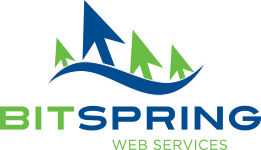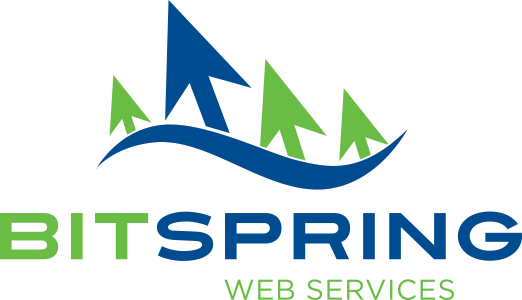The world of web hosting is constantly evolving, and staying ahead of the curve is essential to deliver top-notch service to your clients. If you’re a WordPress hosting enthusiast like us, you’ll be thrilled to know that PHP 8.2 is here to revolutionize your hosting experience. In this blog post, we’re diving deep into the release of PHP 8.2, exploring its most anticipated features, discussing its performance gains compared to PHP 7.4, and addressing potential benefits and challenges for WordPress users and popular plugins.
Saying Farewell to PHP 7.4
Before we embark on our PHP 8.2 journey, it’s worth noting that PHP 7.4, a stalwart in the world of web development, has officially reached its end-of-life cycle for support. This means it’s time to bid adieu to PHP 7.4 and embrace the exciting new horizons PHP 8.2 has to offer.
PHP 8.2: What’s in Store?
PHP 8.2 brings a host of exciting features and improvements, making it a compelling choice for web hosting, especially for WordPress sites. Let’s delve into the most anticipated new features:
1. Fibers and Coroutines
One of the standout features of PHP 8.2 is the introduction of fibers and coroutines. Fibers allow you to write asynchronous, non-blocking code, which can significantly boost the performance of your WordPress site. Tasks like database queries and external API calls can now be handled more efficiently, reducing page load times and enhancing the user experience.
2. Union Types
Union types are a game-changer for code quality and robustness. With union types, you can specify that a parameter can accept multiple types, offering more flexibility while ensuring type safety. This can be especially helpful when working with WordPress plugins and themes, as it reduces the risk of type-related errors.
3. Enumerations
Enumerations make your code more readable and maintainable. WordPress developers will appreciate the clarity that enums bring to code, making it easier to work with custom post types, taxonomies, and other WordPress-specific data structures.
4. New Syntax Features
PHP 8.2 introduces a variety of new syntax features, including the “match expression” and “named attributes.” These additions streamline code and make it more elegant. For WordPress developers, this means cleaner and more efficient code when customizing themes and plugins.
5. Performance Improvements
PHP 8.2 doesn’t just bring new features; it also offers significant performance gains. Benchmarks show that PHP 8.2 outperforms its predecessor, PHP 7.4, in terms of execution speed and memory usage. Your WordPress sites hosted on PHP 8.2 will load faster and handle more traffic without breaking a sweat.
6. Error Handling Enhancements
Improved error handling makes debugging WordPress sites more manageable. PHP 8.2 provides more informative error messages, helping you pinpoint issues quickly and efficiently.
Benefits and Challenges for WordPress
Now, let’s address how PHP 8.2 aligns with the world of WordPress hosting and its popular plugins:
Benefits for WordPress:
- Performance Boost: As a web hosting provider, your clients will appreciate the noticeable performance gains with PHP 8.2. WordPress sites load faster and handle more visitors, resulting in a smoother user experience.
- Compatibility: PHP 8.2 maintains strong backward compatibility with its predecessors. This ensures that popular WordPress plugins and themes are less likely to encounter compatibility issues when migrating to the new version.
- Enhanced Security: PHP 8.2 includes security enhancements that protect WordPress sites from potential vulnerabilities, making your hosting service more robust and secure.
Challenges for WordPress:
- Plugin Compatibility: While PHP 8.2 aims to maintain compatibility, some older or less-maintained plugins may not work seamlessly with the new version. It’s essential to test your clients’ sites and ensure that all plugins and themes are up to date.
- Server Configuration: Updating PHP to version 8.2 might require adjustments to server configurations. Working closely with your hosting provider or server admin is essential to ensure a smooth transition.
Performance Comparison: PHP 7.4 vs. PHP 8.2
For those still contemplating the switch to PHP 8.2, a performance comparison with PHP 7.4 is a compelling argument. Here’s a brief look at the performance gains:
- Execution Speed: PHP 8.2 outperforms PHP 7.4 in terms of execution speed, which means WordPress sites hosted on PHP 8.2 load faster and handle more requests per second.
- Memory Usage: PHP 8.2 is more memory-efficient, reducing the server’s memory footprint. This leads to cost savings and more efficient resource utilization.
- Concurrency: With the introduction of fibers and coroutines, PHP 8.2 excels in handling multiple concurrent connections, improving the response time for WordPress sites under heavy traffic.
Wrapping Up
In the fast-paced world of web hosting, staying updated with the latest technologies is paramount. PHP 8.2 is not only a significant leap forward in terms of performance but also offers an array of features that make it an attractive choice for WordPress hosting. While there may be some compatibility challenges, the benefits in terms of speed, security, and flexibility make it a worthwhile upgrade.
With PHP 7.4 officially reaching its end-of-life cycle, there’s no better time to explore the possibilities of PHP 8.2 and supercharge your WordPress hosting service. So, why wait? Upgrade to PHP 8.2, optimize your hosting environment, and provide your clients with a seamless and lightning-fast WordPress experience.
As you venture into this new PHP realm, don’t forget to keep your hosting platform optimized, ensure plugin compatibility, and continue delivering top-tier service to your clients. It’s a journey well worth embarking on!
Note: This blog post is based on information available as of the publication date. Be sure to check for the latest updates and consult with your hosting provider for the most accurate guidance on PHP 8.2 implementation.

